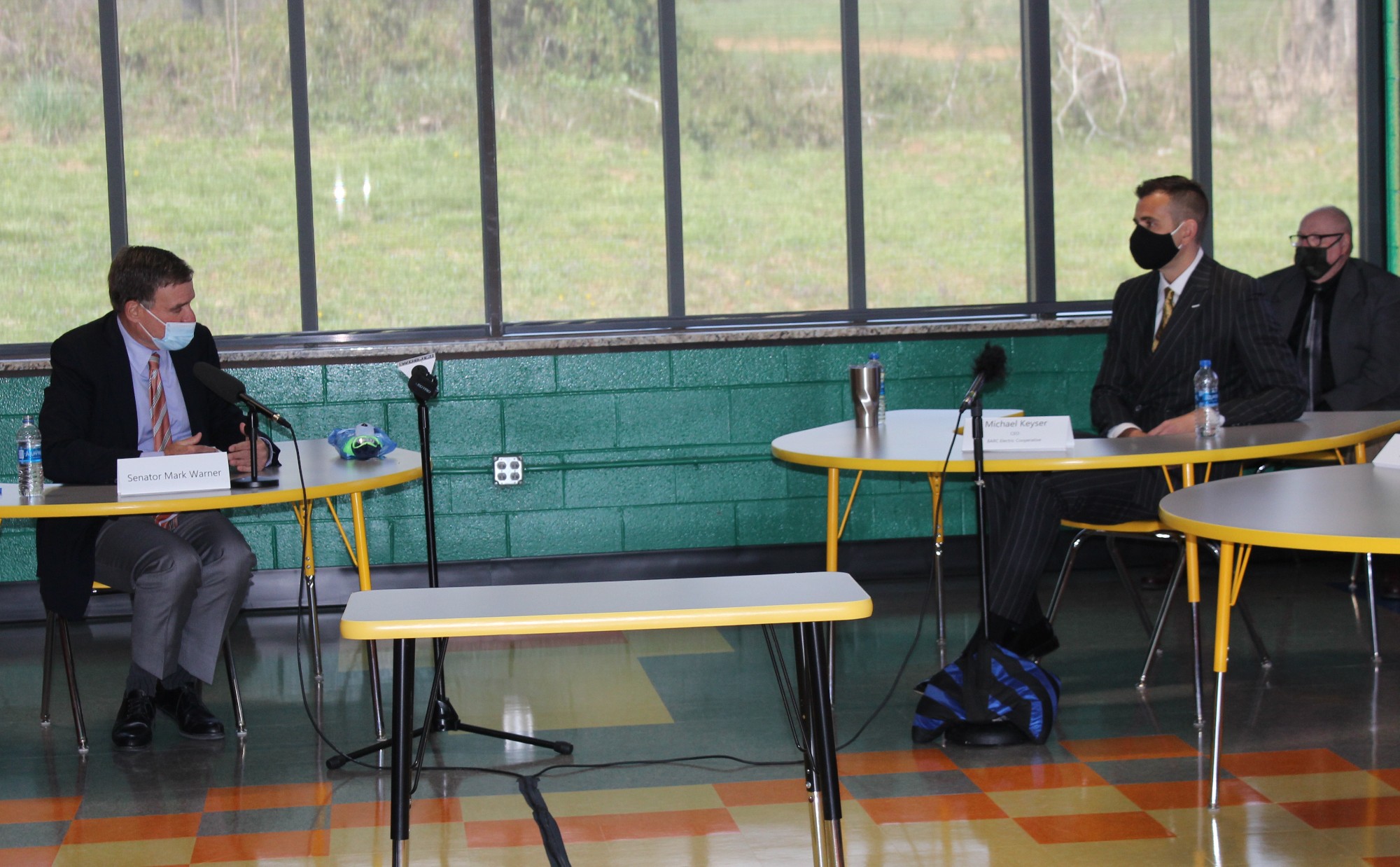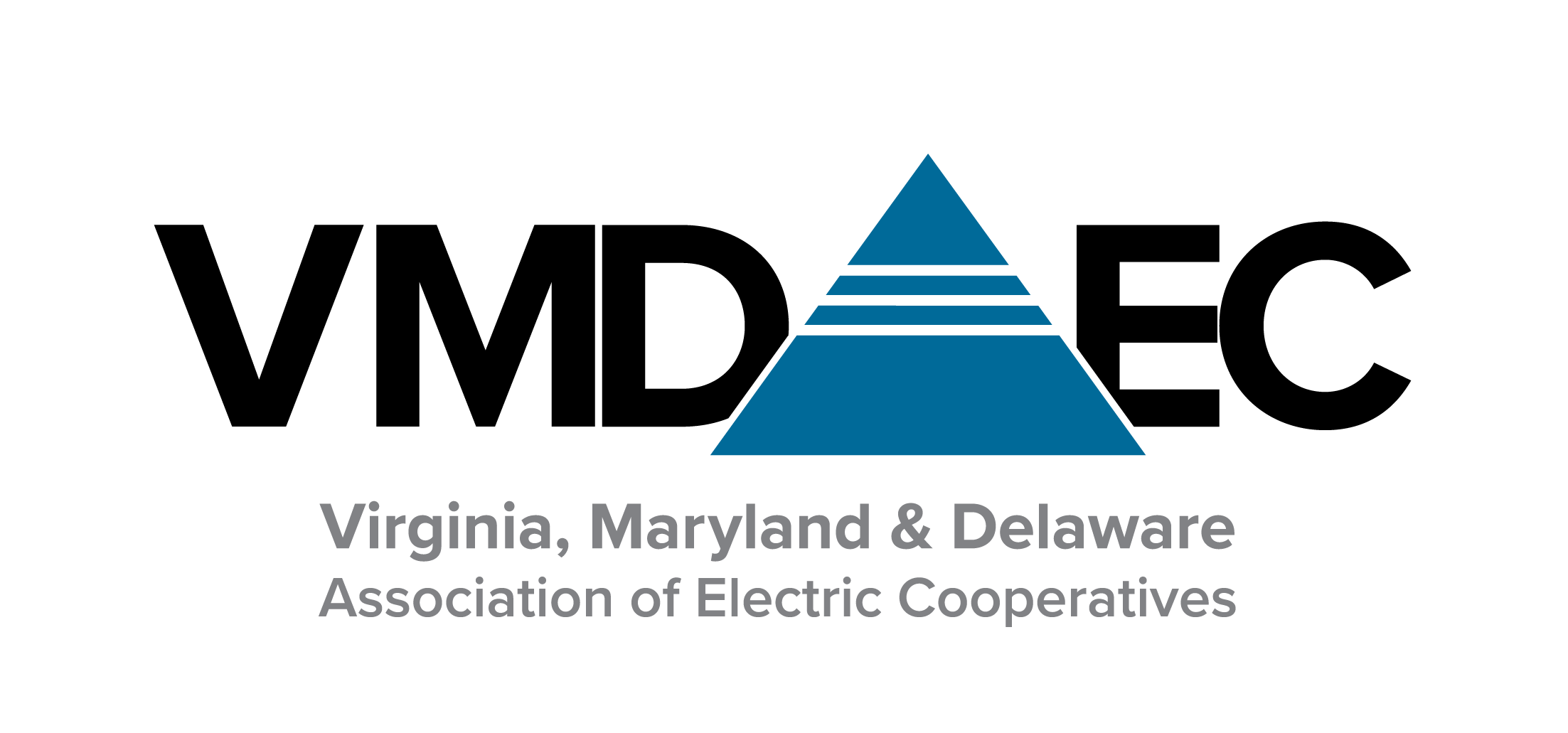
U.S. Sen. Mark Warner (l) listens to Mike Keyser, CEO of BARC Electric Cooperative, on the co-op’s comprehensive broadband initiative.
Meeting with community and electric cooperative leaders April 7 in Lexington, Va., Sen. Mark Warner spoke forcefully about the need for greater access to high-speed internet service in rural America.
“We’ve got to make sure that we actually get broadband expansion at higher speeds, that we’re not simply overbuilding areas that are already overbuilt or providing a quality of service that doesn’t meet the needs of the people,” Warner said during a roundtable hosted by BARC Electric Cooperative.
“There’s no reason why the kids in Bath County shouldn’t have every bit the high-speed internet connectivity as the kids in Alexandria,” he said. “This needs to be an economic justice issue.”
The forum, held at BARC’s solar facility just west of Lexington, brought the senator together with about two dozen representatives of Rockbridge, Bath and Augusta counties, the city of Lexington and business owners, as well as BARC officials.
Through BARC Connects, the cooperative has been a national leader in developing an entire fiber-to-the-home network to bring world-class speed to an underserved area in western Virginia.
Warner said he was impressed with BARCs responsiveness and called it the equivalent of President Franklin D. Roosevelt’s rural electrification program in the 1930s when electric cooperatives first lit up the countryside.

U.S. Sen Mark Warner makes a point during a visit to BARC Electric Cooperative.
“Broadband is not going to mean economic success. But the absence of broadband is going to mean your community is going to get the short end of the stick. The absence of broadband means your kids are not going to get a fair shake in this economy,” he said, noting that recent congressional appropriations have been aimed at expanding access to broadband.
“This country needs the same commitment to broadband that Roosevelt made to rural electrification in the 30s. I think in this past year, people get that in a visceral way that they never got beforehand,” Warner added.
BARC CEO Mike Keyser said the session with Warner covered valuable ground. “He sees co-ops as a real solution to the problem of getting universal access to broadband.”

